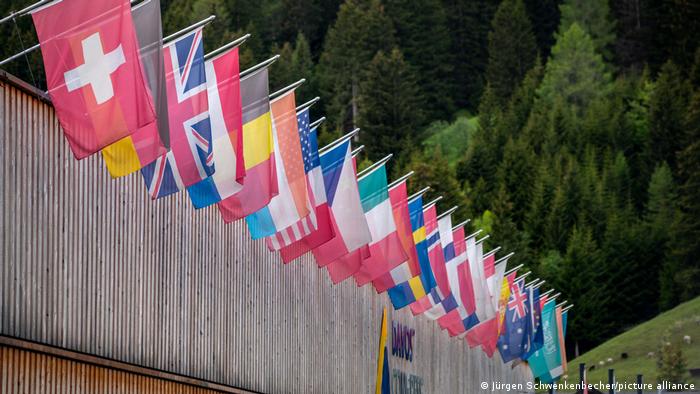The Ukraine war has dramatic consequences for the world economy and it is no wonder that it is also the dominant topic at the World Economic Forum in Davos.
The annual meeting of the World Economic Forum (WEF) began in Davos, Switzerland. 2,500 participants from politics, business and society will discuss solving international problems. The meeting traditionally takes place in mid-January, but was postponed due to the coron pandemic – and is now under pressure from the Russian aggression war in Ukraine and its aftermath worldwide.
At the beginning of the meeting, the President of the World Economic Forum, Børge Brende, called on the “Süddeutsche Zeitung” for a Marshall plan for the reconstruction of Ukraine. The forum, which runs through Thursday, opened with a speech by Ukrainian President Volodymyr Zelensky, which was linked via video. In it Zelenski called for “maximum sanctions ” against Russia, for example an embargo on Russian energy resources.
Warning of the global recession
Among the other issues addressed in this forum are those related to international energy supply and the balance between economic gain and social justice. German Federal Minister of Economy Robert Habeck said in his speech in Davos that he sees four interrelated crises: high inflation in many countries, energy crises, food shortages and climate crises. “We can not solve problems if we focus only on one of the problems,” Habeck warned. “But if none of the problems are solved, then I’m really worried that we are going through a global recession,” he said.
Such a recession would have serious effects not only on climate protection but also on global stability as a whole, Habeck continued. However, if each country takes care of itself, this will exacerbate the crisis. “We have to keep the markets open,” said the German economy minister.
According to Habeck, the rules of the markets must change at the same time. It is not about de-globalization, but more cooperation and solidarity, Habeck said in Davos.
Oxfam calls for higher taxes for the rich
Due to rising inequality around the world the development organization Oxfam called at the outset of the World Economic Forum for greater taxation of companies as well as billionaires.
“It is unacceptable that corporations and the billionaires behind them are making record profits, while millions are being forced not to eat a meal, turn off the heat, not be able to pay their bills and ask what they can do to survive.” , said Oxfam spokesman Manuel Schmitt.
According to Oxfam governments need to urgently take countermeasures and tax corporations and the super rich. Schmitt demanded that in Germany the property tax should be reintroduced and a one-time tax should be imposed on those who have very large assets, as well as a corporate income tax. According to Oxfam the richest people in the world have become even richer since the beginning of the coron pandemic and the wealth of billionaires has increased by 42 percent.




